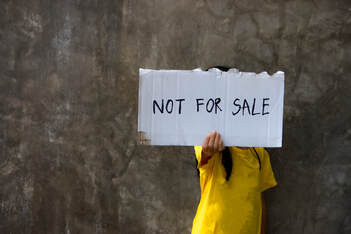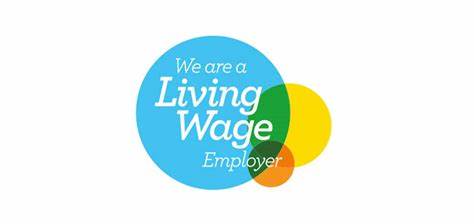|
What is Human Trafficking?
Human trafficking and modern slavery affects millions of men, women and children across the world. It is defined by the United Nations Office of Drugs and Crime as:
Broken down into simpler terms, this means human trafficking is made up of three elements:
|
What is Modern Slavery?
This acts as an umbrella term, which covers a number of human rights issues, Human Trafficking is a form of Modern Slavery. Modern slavery also encompasses:
|
Being AwareTrafficking and slavery are happening in nearly every community; however, this is often a crime that appears hidden. Being able to spot the signs and identifying it is the key to stopping it.
What to look out for
There are many different signs that a person might be at risk or being exploited and they may change depending on the type of exploitation. A few to be aware of include, if a person:
|
What to do if you suspect that someone is in slavery?
If you suspect that someone is in slavery, DO NOT confront them or cause a scene as this will likely lead to increased harm for them. Instead, inform relevant authorities or organisations working in the field. If you are in the UK and suspect someone might be in slavery, you have several options:
|
The National Referral Mechanism (NRM)
The National Referral Mechanism (NRM) is a government framework for identifying victims of human trafficking or modern slavery and ensuring they receive the appropriate support.
Who can make a referral into the NRM?
|
There are only certain approved organisations who are 'First Responders' who can refer a person into the NRM. The First Responder will speak to the potential victim of human trafficking and/or modern slavery to discuss the NRM and assess whether they show indicators of trafficking. If the First Responder believes an individual may have experienced trafficking or slavery and the potential victim agrees to a referral being made, then the First Responder will complete a form and send it to the Competent Authority. You can find a list of First Responders here.
Two of the key First Responders are the Local Authority & Police but the Salvation Army are also First Responders and they have a 24/7 referral helpline: 0300 303 8151
|
What happens after the NRM?
|
Many individuals will exit the NRM with a long journey ahead of them, with various barriers to overcome.
Rebuild East Midlands started in 2017 in response to the increasing number of individuals identified as living in Derby who had experienced human trafficking and modern slavery, and were not receiving the support they needed to recover and rebuild their lives. This is where Rebuild East Midlands will support individuals to overcome barriers they may face in moving forward with their lives. Rebuild caseworkers will work closely with individuals to ensure that they get the right support and encouragement to integrate back into the community, and rebuild their lives. |
Breakdown of terminology:
- NRM – National Referral Mechanism (the government system for identifying victims of modern slavery, as well as a pathway to support).
- Single Competent Authority – the NRM decision making body within the Home Office.
- First Responder – a specific organisation with the ability to refer someone into the NRM (e.g Local Authority, Police, Salvation Army and many more).
- Reasonable grounds decision – the initial decision from the Competent Authority that someone is a potential victim of modern slavery..
- Conclusive grounds decision – the final decision from the Competent Authority that someone is definitely a victim of modern slavery.















